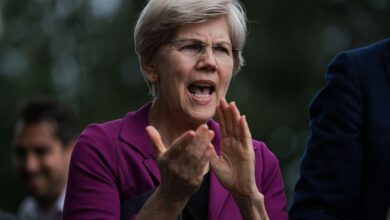Escalation dominance? – Econlib

Kyle Chan’s Insights on Escalation Dominance in Trade Wars
Kyle Chan recently shared his thoughts on the concept of escalation dominance in a blog post. He argues that there is no such thing as escalation dominance in the ongoing trade war between the US and China. While Trump believes that the US holds the upper hand due to its ability to impose tariffs on more Chinese goods, Chan points out that China has other means of escalation beyond tariffs.
According to Chan, neither side truly has escalation dominance as both countries have already moved beyond traditional trade measures. This lack of clear dominance only serves to worsen the situation as both the US and China believe they have the upper hand, leading to a dangerous cycle of recklessness and bravado.
Rallying Around the Flag in China
In China, there has been a notable shift in public sentiment as the country faces economic pressure from the US. Bloomberg reports that various sectors in China, including investors, manufacturers, and policymakers, are rallying behind President Xi Jinping in the face of the trade war. Even those who have been critical of Xi in the past are now supporting him against what is perceived as an economic attack from the US.
On the other hand, public opinion in the US is divided, with President Trump losing support, particularly on economic and tariff-related issues. The Chinese public, accustomed to enduring economic hardship, is rallying around the idea of standing firm against the US.
Cultural Differences in Accepting Economic Pain
One key factor in the trade war is the cultural difference in accepting economic pain. The Chinese ability to “eat bitterness” and endure hardships without complaint is deeply ingrained in their culture. This resilience is not as prominent in American culture, where consumers are less accustomed to enduring economic hardships.
Flawed Economic Models and Misconceptions
The Trump administration may have miscalculated the situation by relying on a flawed economic model. While economists understand the benefits of importing goods, the misconception that exporting countries gain more from trade may have influenced the administration’s decisions. This flawed perception could lead to a rude awakening in the coming months.
Despite uncertainties, one thing remains certain – if a trade deal is reached with China, the administration will likely declare it a “win” for the US, regardless of the actual terms of the agreement.
It’s worth noting that the concept of “escalation dominance” has its roots in the Cold War era with the Soviet Union, highlighting the strategic dynamics of conflict escalation.





